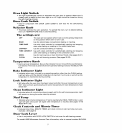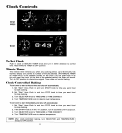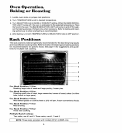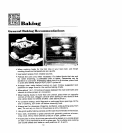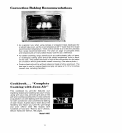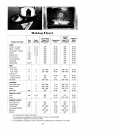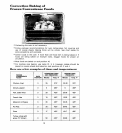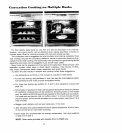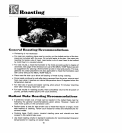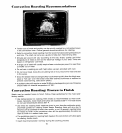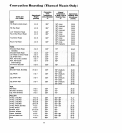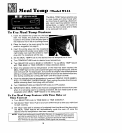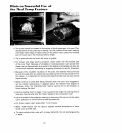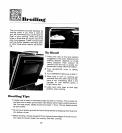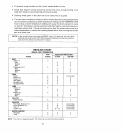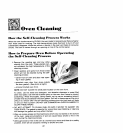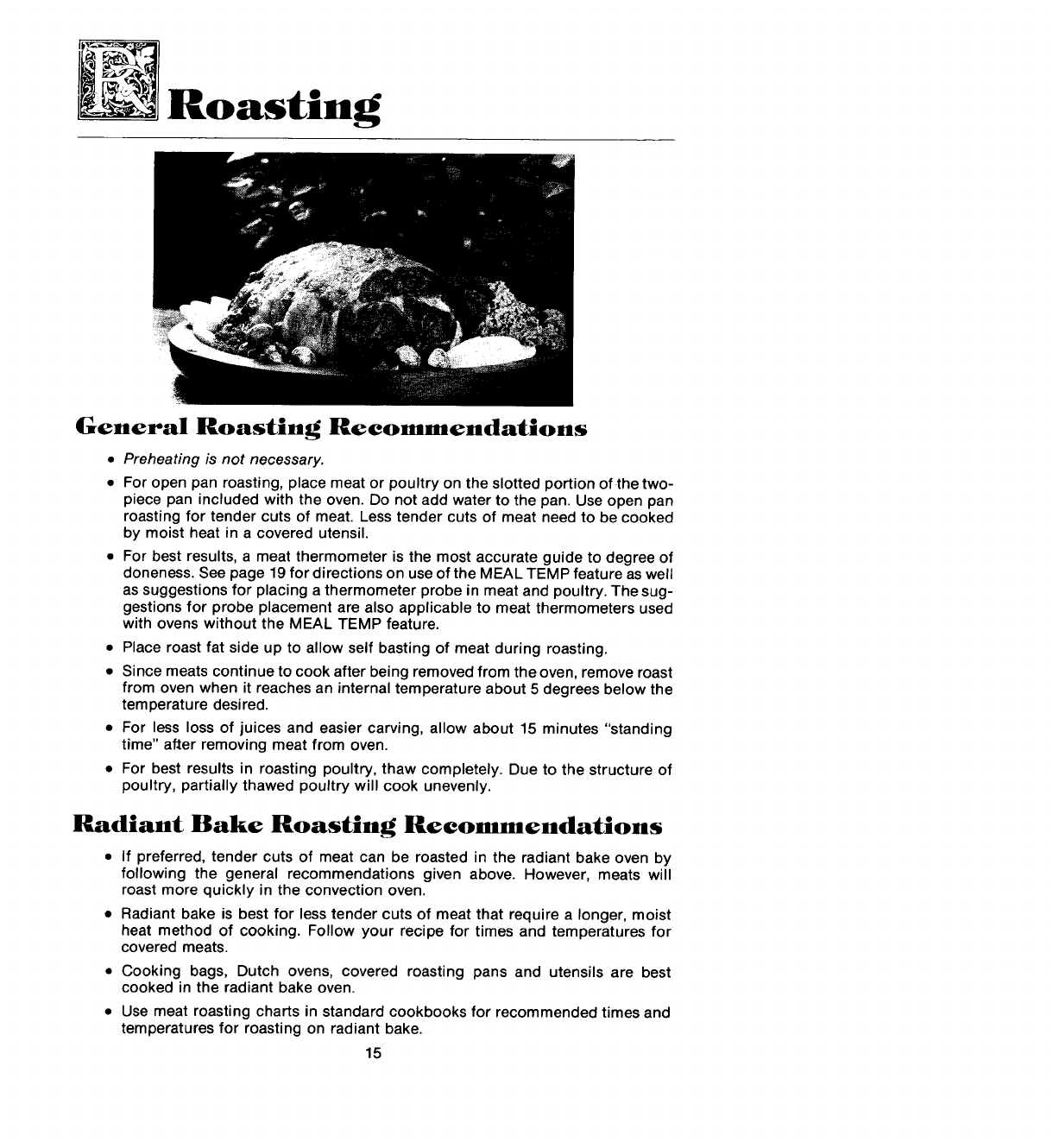
Roasting
General Roasting Recommendations
• Preheating is not necessary.
• For open pan roasting, place meat or poultry on the slotted portion of the two-
piece pan included with the oven. Do not add water to the pan. Use open pan
roasting for tender cuts of meat. Less tender cuts of meat need to be cooked
by moist heat in a covered utensil.
• For best results, a meat thermometer is the most accurate guide to degree of
doneness. See page 19 for directions on use of the MEAL TEMP feature as well
as suggestions for placing a thermometer probe in meat and poultry. The sug-
gestions for probe placement are also applicable to meat thermometers used
with ovens without the MEAL TEMP feature.
• Place roast fat side up to allow self basting of meat during roasting.
• Since meats continue to cook after being removed from the oven, remove roast
from oven when it reaches an internal temperature about 5 degrees below the
temperature desired.
• For less loss of juices and easier carving, allow about 15 minutes "standing
time" after removing meat from oven.
• For best results in roasting poultry, thaw completely. Due to the structure of
poultry, partially thawed poultry will cook unevenly.
Radiant Bake Roasting Recommendations
• If preferred, tender cuts of meat can be roasted in the radiant bake oven by
following the general recommendations given above. However, meats will
roast more quickly in the convection oven.
• Radiant bake is best for less tender cuts of meat that require a longer, moist
heat method of cooking. Follow your recipe for times and temperatures for
covered meats.
• Cooking bags, Dutch ovens, covered roasting pans and utensils are best
cooked in the radiant bake oven.
• Use meat roasting charts in standard cookbooks for recommended times and
temperatures for roasting on radiant bake.
15



